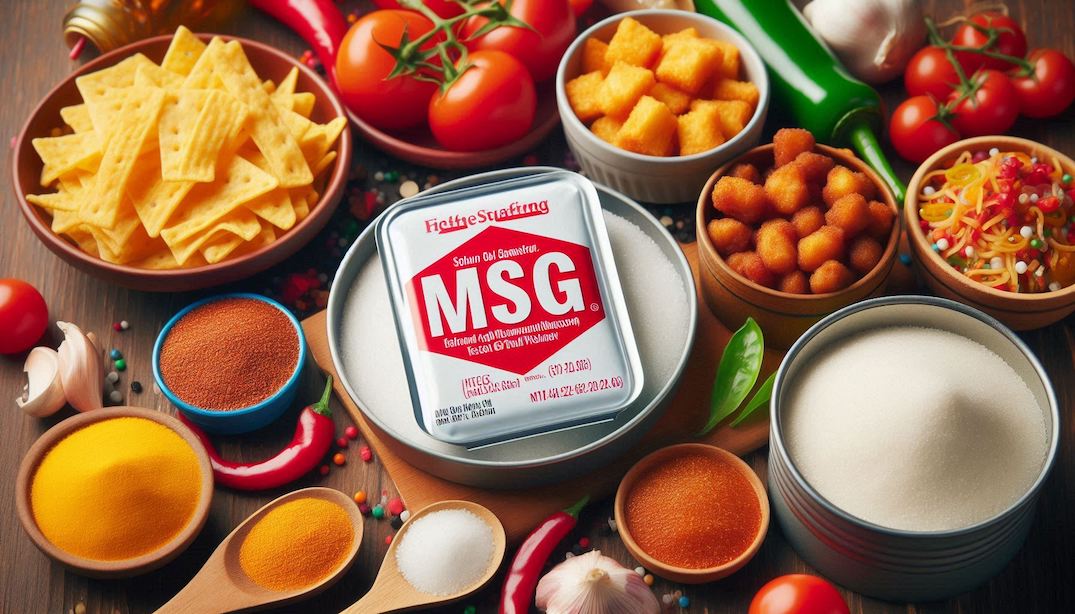
MSG is a flavor enhancer commonly added to foods to boost their savory or umami taste. It is the sodium salt of glutamic acid, an amino acid naturally present in many foods, including tomatoes, cheese, and mushrooms. MSG is used widely in Asian cuisine, processed foods, canned soups, snacks, and fast food.
Safety of MSG:
The safety of MSG has been a topic of debate for many years. Research and regulatory bodies, including the U.S. Food and Drug Administration (FDA) and the World Health Organization (WHO), consider MSG safe for the general population when consumed in normal quantities. The FDA classifies MSG as “generally recognized as safe” (GRAS).
Reactions to MSG:
Some people report experiencing symptoms after consuming foods containing MSG, a phenomenon sometimes referred to as “Chinese Restaurant Syndrome” or “MSG Symptom Complex.” These reported reactions include:
- Headaches
- Flushing
- Sweating
- Chest pain or tightness
- Nausea
- Weakness
- Heart palpitations
- Numbness, tingling, or burning in the face, neck, or other areas
These symptoms are generally mild and short-lived, but their existence has led to widespread concern about MSG.
Research on MSG Reactions:
Research on MSG reactions has produced mixed results. Some studies suggest that a small subset of the population may be sensitive to large amounts of MSG, while other studies fail to show a direct cause-and-effect relationship between MSG consumption and these symptoms. A key point is that these reactions are more likely to occur when MSG is consumed in large amounts without other food, as in some laboratory tests, rather than in typical food consumption scenarios.
FDA Approval:
The FDA has approved the use of MSG as a food additive, and it is allowed in restaurant foods, canned soups and vegetables, deli meats, snacks, and many other processed foods. The FDA requires that foods containing MSG list it on their ingredient labels, so consumers can identify its presence in their food.
In summary, while some people report reactions to MSG, scientific evidence supporting widespread adverse effects is limited. Regulatory bodies, including the FDA, consider MSG safe for consumption in the quantities typically found in foods. However, individuals sensitive to MSG should monitor their intake and check ingredient labels to avoid potential reactions.
-Thanh Thuỷ-
*****
Here are sources and references regarding the safety, effects, and regulatory status of MSG (Monosodium Glutamate):
- FDA on MSG:
- The U.S. Food and Drug Administration (FDA) provides detailed information on MSG, including its classification as “generally recognized as safe” (GRAS). The FDA also addresses common concerns and myths about MSG, emphasizing that it is safe for consumption in normal amounts.
- Source: FDA – Food Additives & Ingredients – MSG
- World Health Organization (WHO) and Food and Agriculture Organization (FAO):
- The Joint FAO/WHO Expert Committee on Food Additives (JECFA) has evaluated MSG multiple times and determined it to be safe for human consumption. They established an acceptable daily intake (ADI) “not specified,” meaning there is no toxicological concern for the levels typically consumed.
- Source: WHO – Joint FAO/WHO Expert Committee on Food Additives
- National Library of Medicine – PubMed:
- Research on MSG and its potential effects is extensively documented in scientific literature. Some studies have explored the so-called “Chinese Restaurant Syndrome” or “MSG Symptom Complex,” with mixed results regarding whether MSG directly causes the reported symptoms.
- Source: PubMed – Research Articles on MSG
- American Chemical Society (ACS) – Reactions to MSG:
- The ACS provides an overview of the chemical properties of MSG and discusses the scientific basis behind the alleged symptoms associated with its consumption. The article emphasizes that scientific evidence does not conclusively link MSG to widespread adverse health effects.
- Source: American Chemical Society
- Harvard Health – Understanding MSG:
- Harvard Health Publishing discusses the controversies surrounding MSG, including the reported symptoms and the scientific evidence behind these claims. The article reinforces that MSG is safe for the vast majority of people, though a small percentage may experience mild symptoms.
- Source: Harvard Health – What is MSG?
